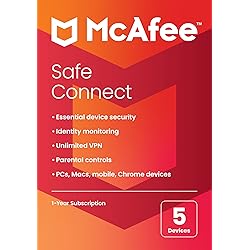VPN for PC Gamers: Lower Ping and More Privacy
VPN for PC gamers has evolved from a niche tool into a powerful asset for both casual and competitive players. While many associate VPNs (Virtual Private Networks) with privacy or streaming, they also offer significant advantages for PC gaming. Lower ping times, reduced lag, anonymity against potential cyber-attacks, and the ability to access geo-blocked servers are just a few reasons more gamers are embracing this technology. Below, we explore how a VPN benefits PC gamers, diving into the technical details and practical tips for optimal results.
—
How VPNs Impact Ping, Lag, and Game Performance
When discussing online gaming, ping—the time data takes to travel from your device to the game server and back—is a critical factor. A high ping causes sluggish gameplay and hampers reaction times, making multiplayer experiences frustrating. Contrary to common myths, the right VPN can sometimes lower ping for PC gamers.
This is possible because VPNs often have optimized routes that avoid overcrowded and inefficient Internet Service Provider (ISP) paths. By connecting to a VPN server that’s geographically close to the game’s server, your data might take a shorter and faster route. Some ISPs are also notorious for traffic shaping, a practice that intentionally slows down gaming traffic. VPNs can help bypass these throttling measures, ensuring you get the speed you’re actually paying for.
However, it’s important to note that not all VPNs are created equal. To genuinely improve your ping and reduce lag, a VPN must have:
– High-speed, low-latency servers
– Locations near your game’s servers
– Unlimited bandwidth
– Strong security protocols with minimal overhead
Choosing the right VPN can, therefore, be a game-changer—sometimes literally.
—
VPN for PC Gamers: Enhanced Privacy and Protection
Aside from network performance, privacy and security are growing concerns for gamers. Online attacks such as Distributed Denial of Service (DDoS), swatting, and doxxing are sadly prevalent, especially in competitive scenes or live streaming. A VPN for PC gamers acts as a robust shield by hiding your actual IP address and encrypting your internet traffic. This means it’s much harder for attackers or trolls to pinpoint your location, launch an attack, or intercept sensitive information.
Additional privacy benefits include:
– Protecting personal info: VPNs prevent exposure of your real IP while connected to public servers or voice chats.
– Safeguarding against hackers: Encrypted connections make it harder for cybercriminals to launch man-in-the-middle attacks or steal credentials.
– Masking usage from ISPs: Gamers can maintain privacy from ISPs, which sometimes collect and log user activity.
—
Accessing Geo-Restricted Games and Servers
For gamers seeking new experiences, regional restrictions on certain games or servers can be a major roadblock. Game release dates, special events, and even entire titles can differ based on a player’s location. The right VPN for PC gamers lets you change your virtual location, enabling access to these otherwise unavailable games and exclusive content.
For those interested in exploring international eSports events, testing foreign server skills, or playing with friends across the globe, a VPN breaks down these borders. It’s important, however, to always follow game publisher terms of service to avoid possible bans for circumventing restrictions.
—
How to Choose the Best VPN for Your Gaming PC
Selecting a VPN for gaming involves more than picking the first one you see. Consider these tips:
– Server variety and coverage: Opt for services with a wide range of servers, especially in locations close to game data centers.
– Unlimited bandwidth: Avoid VPNs that cap your data, which could disrupt multiplayer sessions.
– Reliability: Choose a reputable provider with a proven track record and positive user reviews among gamers.
– App compatibility: Ensure the VPN supports your operating system and devices without significant setup.
Popular, gamer-friendly options include NordVPN, ExpressVPN, and CyberGhost, but always test the connection with your specific games for the best performance.
—
Final Thoughts
Integrating a VPN into your gaming setup isn’t just about privacy—it can enhance your gaming experience by potentially lowering ping, preventing lag from ISP throttling, unlocking new servers, and adding vital security layers. Whether you’re a competitive player or a casual gamer seeking new adventures, considering a VPN for PC gamers is a smart move in today’s digital landscape.


